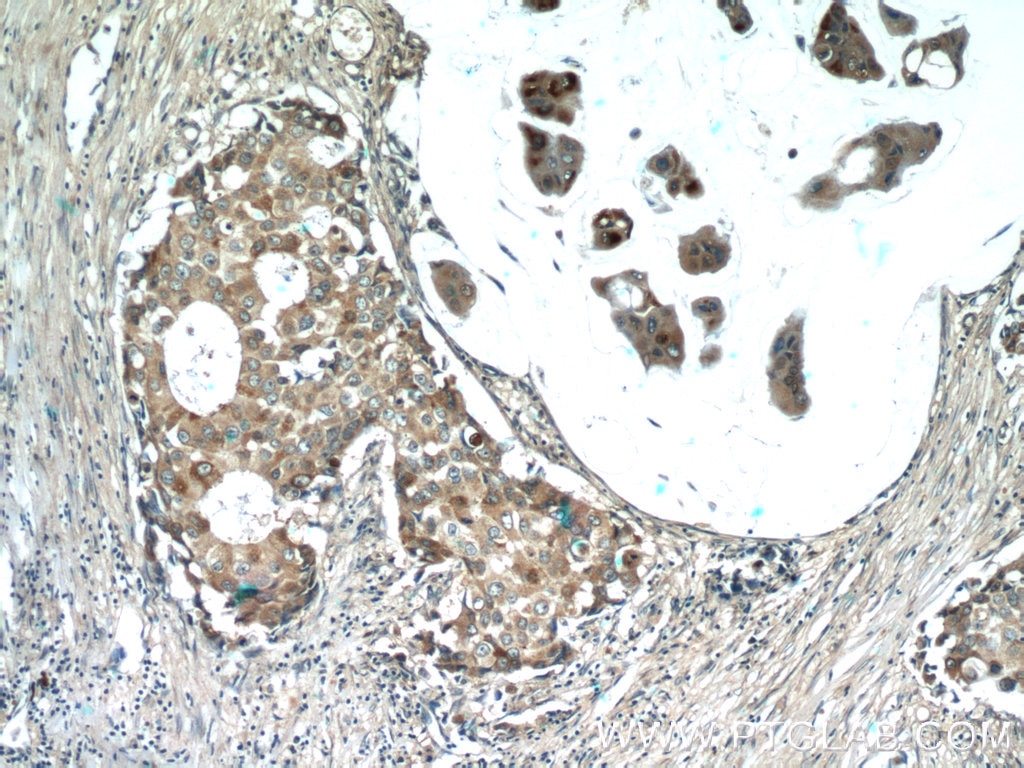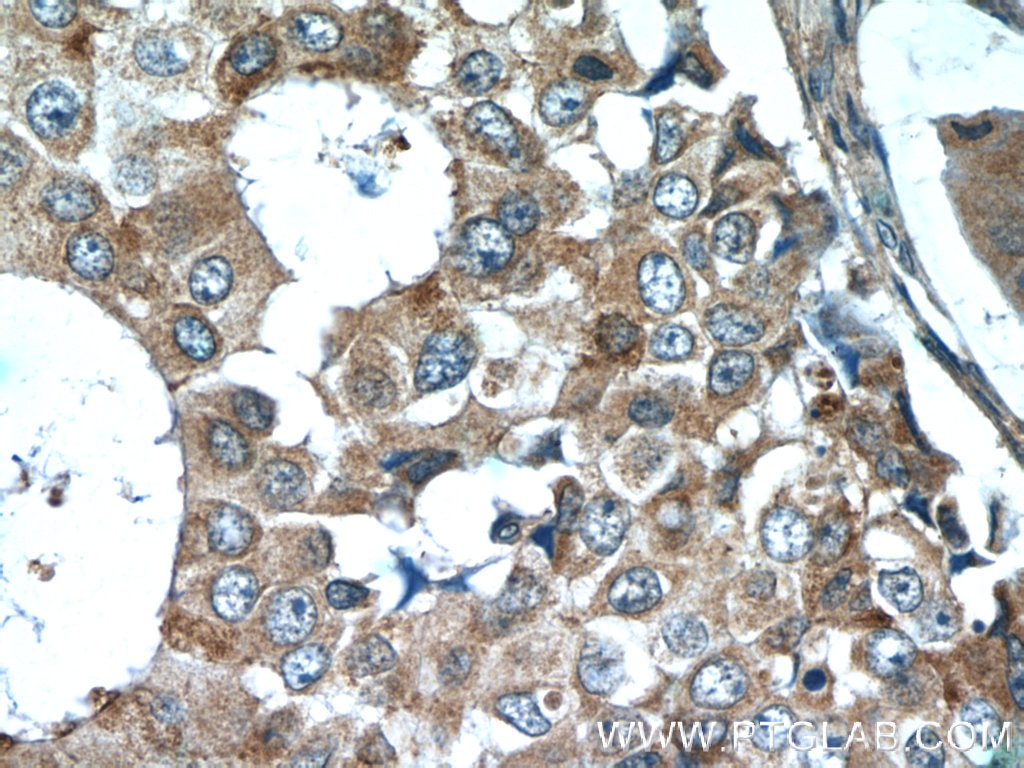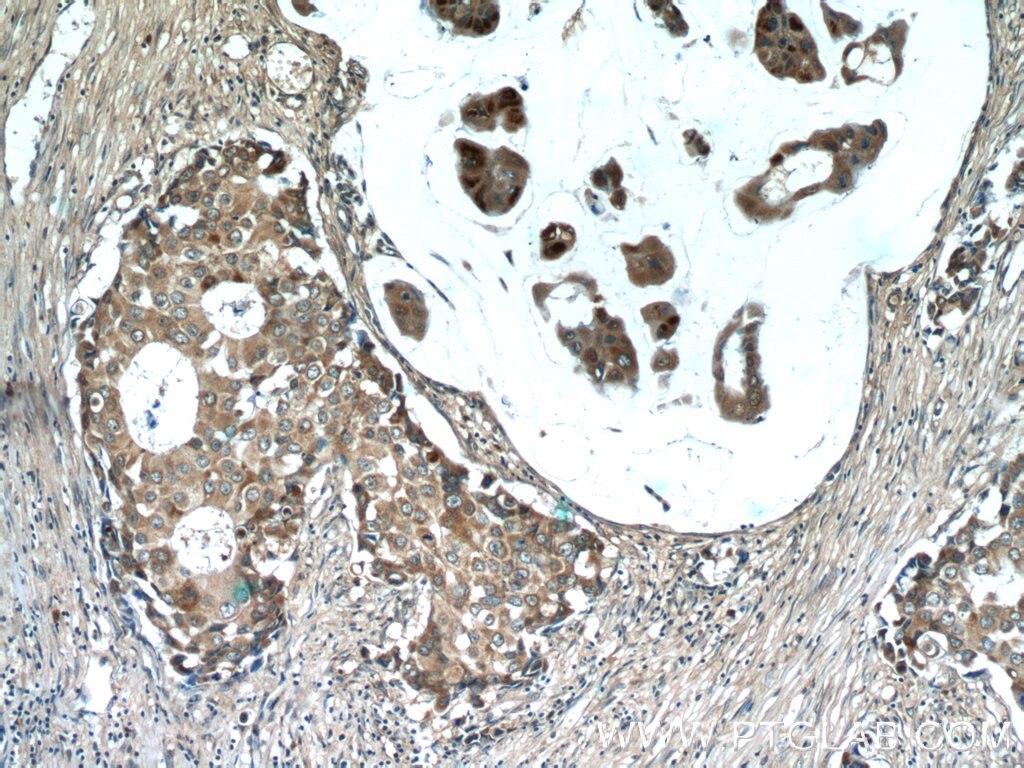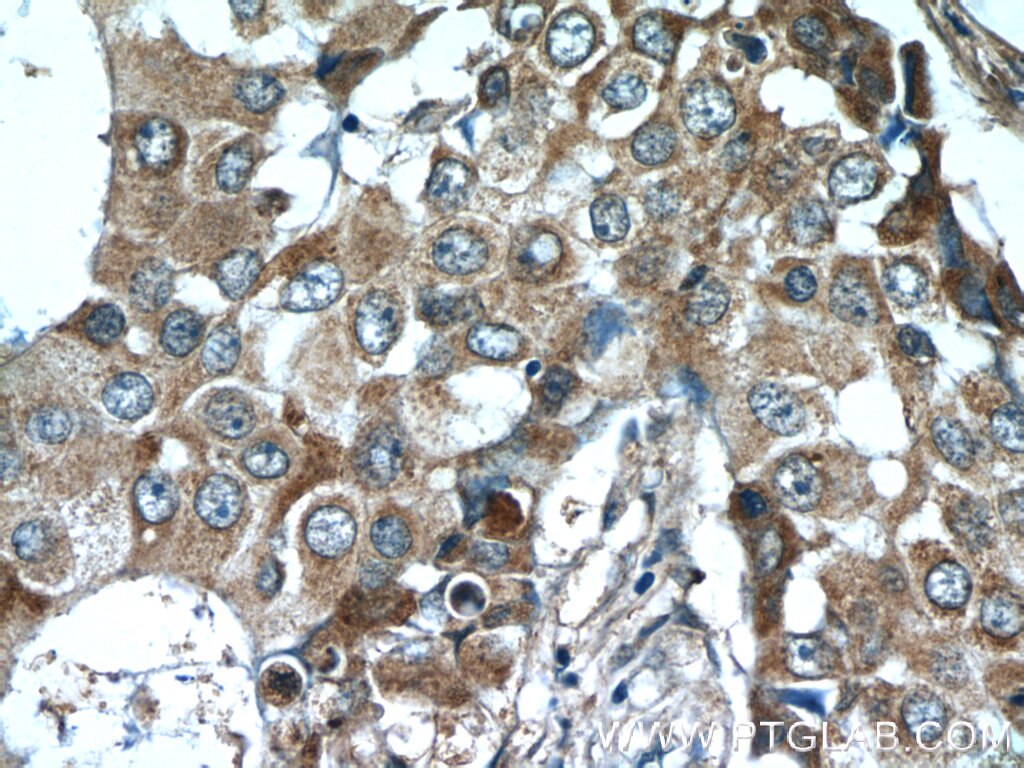Anticorps Polyclonal de lapin anti-CSN3
CSN3 Polyclonal Antibody for IHC, ELISA
Hôte / Isotype
Lapin / IgG
Réactivité testée
Humain
Applications
IHC, ELISA
Conjugaison
Non conjugué
N° de cat : 16032-1-AP
Synonymes
Galerie de données de validation
Applications testées
| Résultats positifs en IHC | tissu de cancer du sein humain il est suggéré de démasquer l'antigène avec un tampon de TE buffer pH 9.0; (*) À défaut, 'le démasquage de l'antigène peut être 'effectué avec un tampon citrate pH 6,0. |
Dilution recommandée
| Application | Dilution |
|---|---|
| Immunohistochimie (IHC) | IHC : 1:10-1:100 |
| It is recommended that this reagent should be titrated in each testing system to obtain optimal results. | |
| Sample-dependent, check data in validation data gallery | |
Informations sur le produit
16032-1-AP cible CSN3 dans les applications de IHC, ELISA et montre une réactivité avec des échantillons Humain
| Réactivité | Humain |
| Hôte / Isotype | Lapin / IgG |
| Clonalité | Polyclonal |
| Type | Anticorps |
| Immunogène | CSN3 Protéine recombinante Ag8901 |
| Nom complet | casein kappa |
| Masse moléculaire calculée | 182 aa, 20 kDa |
| Numéro d’acquisition GenBank | BC010935 |
| Symbole du gène | CSN3 |
| Identification du gène (NCBI) | 1448 |
| Conjugaison | Non conjugué |
| Forme | Liquide |
| Méthode de purification | Purification par affinité contre l'antigène |
| Tampon de stockage | PBS with 0.02% sodium azide and 50% glycerol |
| Conditions de stockage | Stocker à -20°C. Stable pendant un an après l'expédition. L'aliquotage n'est pas nécessaire pour le stockage à -20oC Les 20ul contiennent 0,1% de BSA. |
Informations générales
κ-Casein (CSN3) is the major protein component of milk micelles in most mammalian species. CSN3, which is mainly located at the surface of the micelles, is known to play an essential role in controlling the stability of the micelles. CSN3 from bovine milk possesses molecular chaperone activity and functioned to prevent precipitation of the target protein.
Protocole
| Product Specific Protocols | |
|---|---|
| IHC protocol for CSN3 antibody 16032-1-AP | Download protocol |
| Standard Protocols | |
|---|---|
| Click here to view our Standard Protocols |





